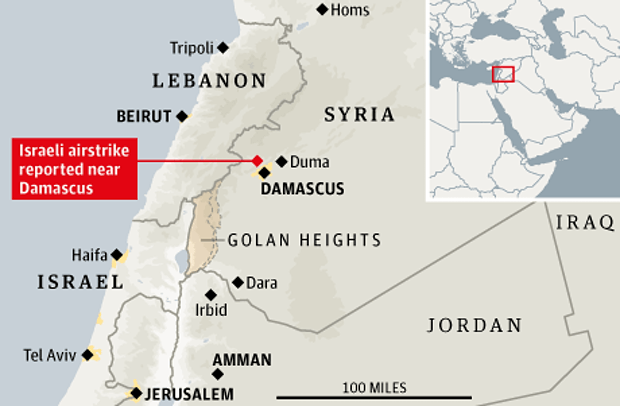Report: Hezbollah holds Assad’s opponents in secret prisons far from regime’s eye
Maayan Groisman.Jerusalem Post/February 18/16/
Hezbollah supporters during a televized speech by the group’s leader Sayyed Hassan Nasrallah in Beirut. Hezbollah uses the control it has recently gained in large parts of Syria to form private enclaves where it enforces its own law and order by torturing Syrian regime opponents as well as opponents to Hezbollah’s presence in Syria in secret prisons it has established. According to a report on al-Souria.Net, a well-known Syrian opposition website, the Lebanese terror organization has established several prisons in the areas where it enjoys the biggest dominance in Syria: the Homs countryside and Damascus countryside. Regime opponents told the website that the most famous Hezbollah prison is the “Yellow Hole” which is located in Homs. According to the report, the prisoners in Hezbollah’s jails enter Syria’s missing list and the organization refuses to release them, even if Syrian President Bashar Assad himself exerts pressure. Hence, Hezbollah’s private prisons might create a rift between Assad and his erstwhile ally Hezbollah which enjoys growing sovereignty in Syria. Another danger to Assad’s rule that might derive from this is a rift between Syria’s Alawite and Shi’ite populations, since Hezbollah tortures in these prisons not only regime opponents, but also Alawite regime supporters who object to its presence in Syrian towns owing to its violations of the rights of the local population. A regime opponent whose brother is jailed in the “Yellow Hole” told the website that officers in the Syrian security services told his family that there’s no hope for their son’s release. He added that “even one of Assad’s officers I have spoken with told me that his relative is in the prison, but he has no way to get him out.”
Israeli missile attack reported on Syrian army outposts on the Damascus-Daraa road
DEBKAfile Special Report February 18, 2016
Israel-Syrian border tensions have soared in the five days since Russia and Syria stepped up their air strikes over rebel positions in southern Syria, drawing ever closer to the Israeli border. The raids are covering a wide radius from the town of Daraa on the Jordanian border up to Quneitra on the Golan. How to react if those raids actually reach the two borders is no doubt a burning topic at General Staff HQ in Tel Aviv and Amman. Neither army wants a head-on collision close to their borders with the coalition of Russian, Syria, Iranian and Hizballah forces. However, the intensified air raids are putting large numbers of Syrian refugees to flight from their homes towards the Israeli and Jordanian borders. The Jordanian border area is in chaos. The kingdom’s army has seized the positions formerly held by Syrian rebel units to hold back the influx of refugees into Jordan. The rebels are dropping their weapons and fleeing in all directions in disarray.
Israel has ordered a blackout on news from Ein Zivan, its border crossing at the Golan town of Quneitra. Wednesday, Feb. 17, as debkafile reported exclusively earlier, Prime Minister Binyamin Netanyahu sent Dore Gold, Director General of the Foreign Ministry to Moscow in search of answers about Russian intentions regarding the Israeli border district. By Wednesday night, no answers were forthcoming. This is not surprising. When the Jordanian Chief of Staff, Lt. Gen. Mashal Al-Zaben was sent on a similar errand to Moscow a few days ago, he was given the runaround, told that, since the Syrian chief of staff happened to be in the Russian capital “by chance,” and since he is in charge of military operations in the border region, why not talk to him? In fact, the Russians had deliberately flown him over from Syria. On the assumption that Dr. Gold would fare no better than the Jordanian general, Israel may have taken matters into its own hands. Three Israeli missiles reportedly struck Syrian military outposts on the road between Daraa and Damascus after Wednesday midnight, according to Syrian human rights monitors. The IDF declined to comment on this report, while the Syrian army and Hizballah denied it.
If this report is true, it would mean that Israel’s patience is running out with the Russian-Syrian aerial campaign that threatens to open the door for Syrian, Iranian and Hizballah forces to take up positions on its northern border. The triple missile strike looks as though it was meant to draw a line in the sand against this happening.



















